Israeli-born chef and restauranteur Michael Solomonov is known in Philadelphia and across the US for his innovative Israeli cuisine with a twist. Think lamb shoulder cooked in pomegranate juice at his flagship eatery Zahav, kale baba salad (kale mixed with baba ghanoush, a creamy eggplant-and-tahini-based Levantine appetizer) at skewer house Laser Wolf, and a Whoopie pie filled with labneh (strained yogurt) at Israeli bakery and cafe Kfar.
In the past year, the five-time James Beard award winner has had to get especially creative as the restaurant industry across America (and the world) took a hit, with many eateries restricted to takeout orders and outdoor dining during the coronavirus pandemic – Solomonov’s award-winning eatery Zahav included.
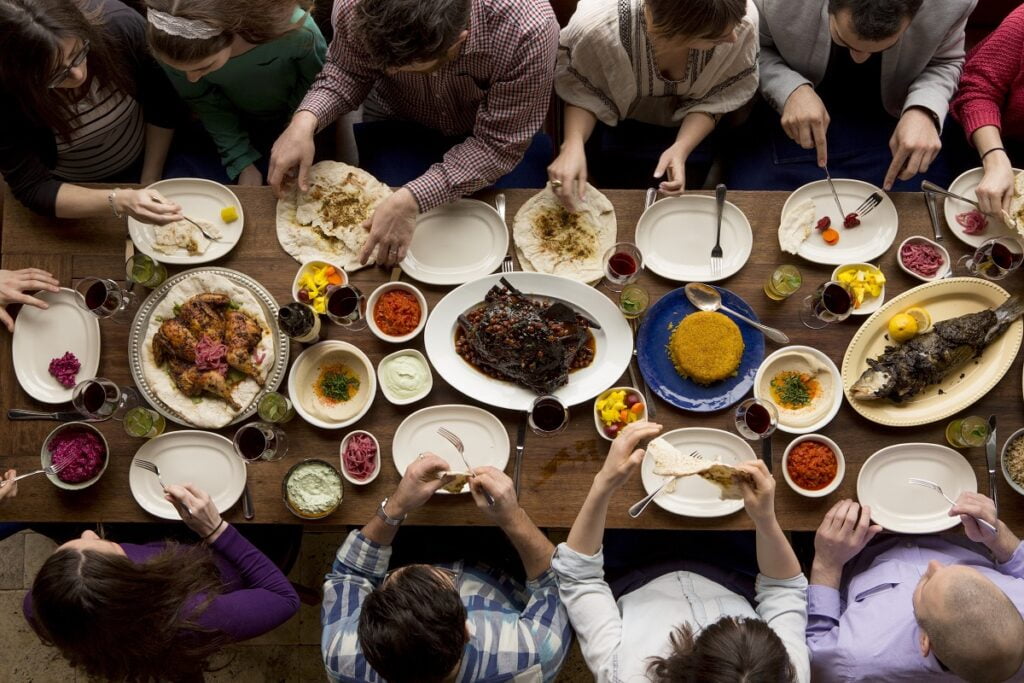
Solomonov is up for the challenge, though. He and business partner Steve Cook teamed up with American Express to place a group of heated yurts, traditional camping-style tents, outside Zahav. The yurt village is surrounded by pictures of special places in Israel, like the ancient port city of Jaffa, and comes with a $90-per-person prix fix five-course dinner featuring an array of delicacies popular in Israel, including Turkish hummus with laffa and chraime, a North African tomato-pepper and fish stew.
SEE ALSO: Israeli Restaurant Zahav Wins Top Award At US Culinary ‘Oscars’
Then there’s “Bringing Israel Home,” a new 16-part web series on Vimeo where Solomonov chats online with Israeli friends and guests about Israeli cuisine and what he’s been missing about the country.
The second half of each episode features Solomonov cooking a special Israeli dish in his own kitchen .

“I’ve been cooking more in my house than I ever have in my life,” he tells NoCamels in a virtual interview from his Philadelphia home. “It was like, ‘Wow, this is pretty fun. And I’m pretty good at it.’ And I felt like I was just missing going back home.”
Israel has extended the suspension of all passenger flights to and from Israel until February 20, due to mounting fears over infectious coronavirus variants from South Africa and the UK. Even prior to the flight ban, few flights into Israel were coming in and passengers were required to follow strict quarantine measures at home or in coronavirus hotels.
This made a trip to Israel for Solomonov and company not possible for the time being.
“I had a couple culinary tours that were canceled,” he says, “A trip with the kids — I’d bring them every summer, my boss, and it’s hard to be away from it.”
Solomonov typically brings his sons to visit Israel every summer for about two weeks to “connect with part of their identity.”
“We’re not doing a ton of touristy stuff. I like to just be in Kfar Saba and walk up and down the streets and go into a playground or go to the beach in Herzliya. I miss that. I miss the smells. I miss the energy. I miss senior citizens playing shesh besh (Israeli backgammon) at midnight on the street corner. I love that.,” he tells NoCamels.
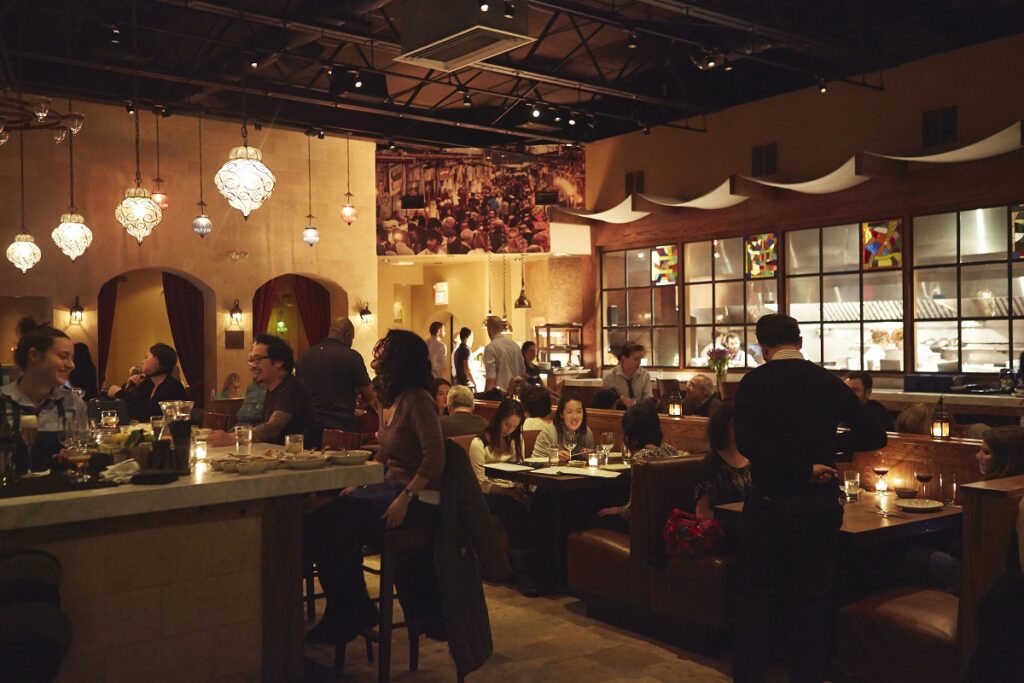
For Solomonov, interviewing guests on his show is a chance to reconnect with the Israel that he has not seen in the past year.
His first episode, broadcast on January 13, included conversations that explored Israel’s diversity with Via Sabra tour guide Avihai Tsabari and Haaretz food journalist Ronit Vered. In the second episode, Young Judean students in their gap year in Israel showed viewers pictures from their adventures and talked about the new Israeli foods they now liked to make. Other episodes included exploring the port city of Akko (Acre) with Tsabari and Akko chef Osama Dalal, talking about Yemenite traditions with Yemen Blues lead singer Ravid Kahlani, and getting to know Israeli bakeries with legendary baker Uri Scheft, an episode that premiered this week.
With the accompanying cooking segment in each episode, Solomonov shares recipes for dishes like chicken thighs with kumquats, fish schnitzel with kataifi, and Yemenite soup. He made bourekas with Scheft by hand stretching phyllo dough. All recipes are available to viewers ahead of each show, in collaboration with Jewish Food Society. (They can be viewed on the JFS site.)
Sign up for our free weekly newsletter
Subscribe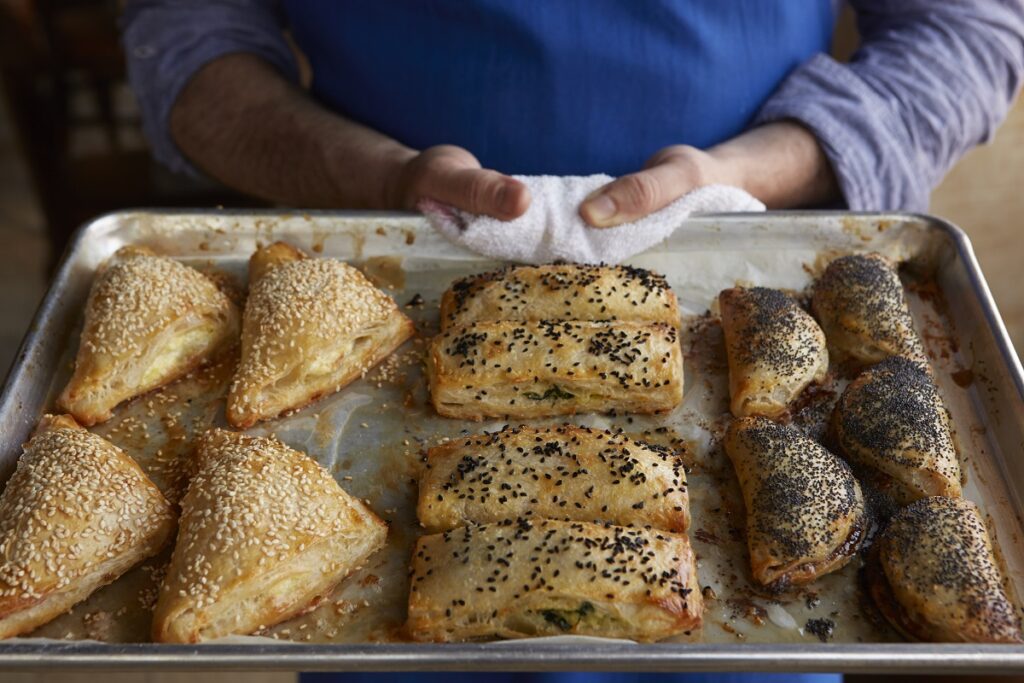
Future guests will include Israeli actor Sasson Gabbay, popular singer Denis Lloyd, cookbook author Adeena Sussman, television personality Amit Aronson, Israeli chef and food journalist Ruthie Rousso, representatives from Leket, the National Food Bank of Israel, Yonatan Borovitz, head chef at Ramat Aviv-based restaurant M25, and Asaf Doktor, a Tel Aviv restauranteur who owns popular Tel Aviv eateries Haachim, Dok, and Abie.
In March, one special episode will be dedicated to Solomonov’s brother David, who was killed by a sniper near the Lebanese border in 2003 while serving in the Israel Defense Forces and three days shy of his release from the military. His birthday would have been March 6, Solomonov says.
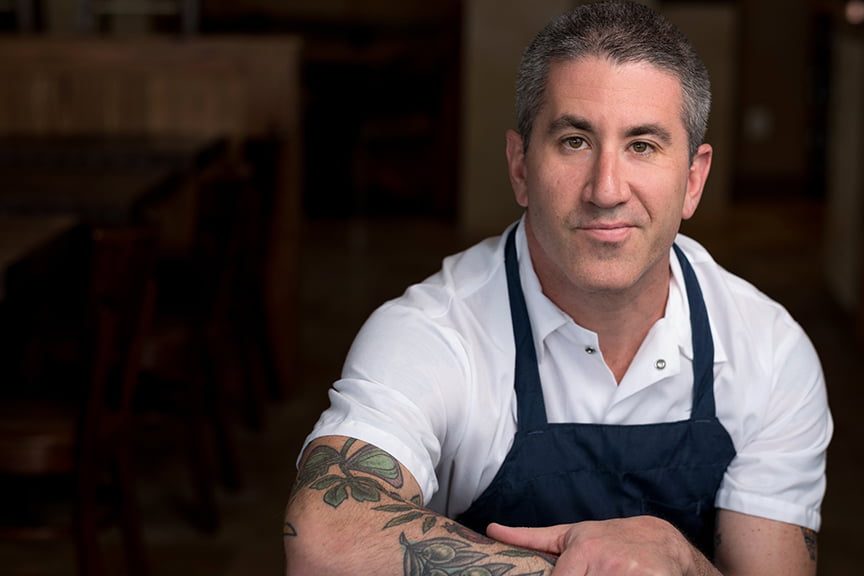
“We’re going to have a little tribute to him, which I think is important. I don’t know how I’m going to not cry for an hour. But those parts of Israeli society, I think, are important to share,” he says.
Solomonov, who was born in G’nei Yehuda, Israel, but raised in Pittsburgh, has found that cooking is a better way to respond to the death of his brother. At 18, Solomonov worked at a bakery in Israel, then moved on to culinary school in Florida and eventually worked in Philly at an Italian restaurant called Vetri. But he didn’t get serious about cooking as a career until after his brother’s death in 2003.
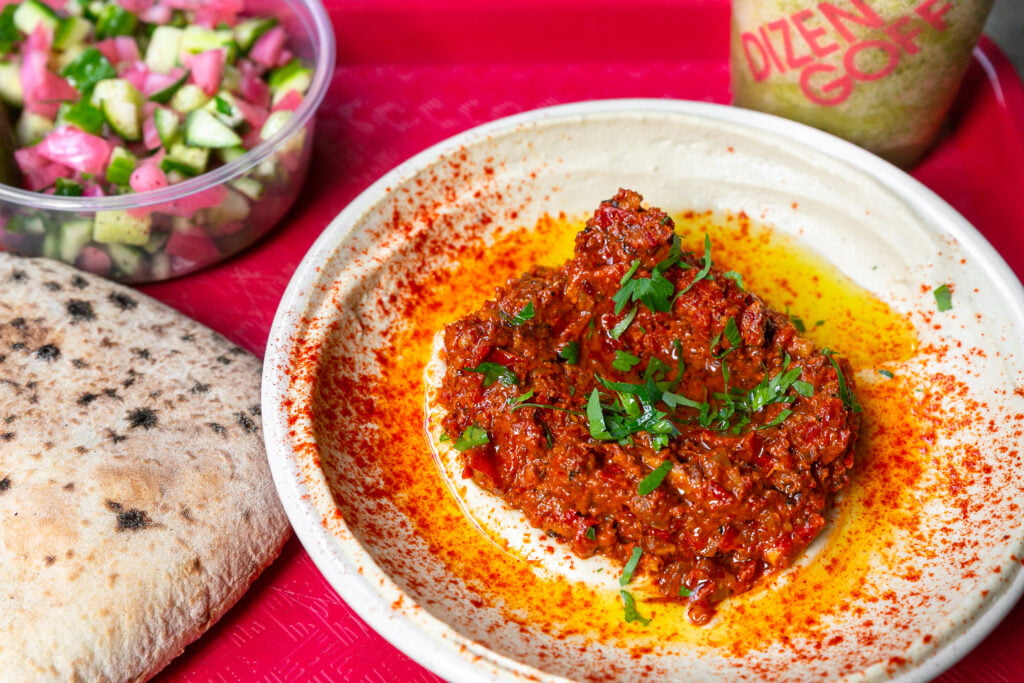
That was when he decided to change his focus to Israeli and Jewish cuisine, in part to remember his brother and country of origin. He met financier and current business partner in Steve Cook in 2006.
Things weren’t as great as they looked on the outside. As his Israeli cuisine-based restaurant Zahav opened in May in 2008, a little more than five and a half years after the loss, Solomonov was working through an addiction problem. With the help of family and friends, like Cook, he turned his life around and focused on building cafes, bakeries, and restaurants.

Today, he owns eight restaurants through CookNSolo, a partnership with Cook, including Zahav, the restaurant that is said to have spearheaded Israeli cuisine in the US and has earned Solomonov five James Beard Foundation awards. There’s also his Israeli bakery and cafe, Kfar, his classic Israeli hummusiya Dizengoff, his Israeli grill Laser Wolf, the Israeli street food and sandwich shop Merkaz, the world’s first fried chicken and donut shop Federal Donuts, falafel shop Goldie, and Abe Fisher, a restaurant serving up Eastern European dishes of the Jewish diaspora.
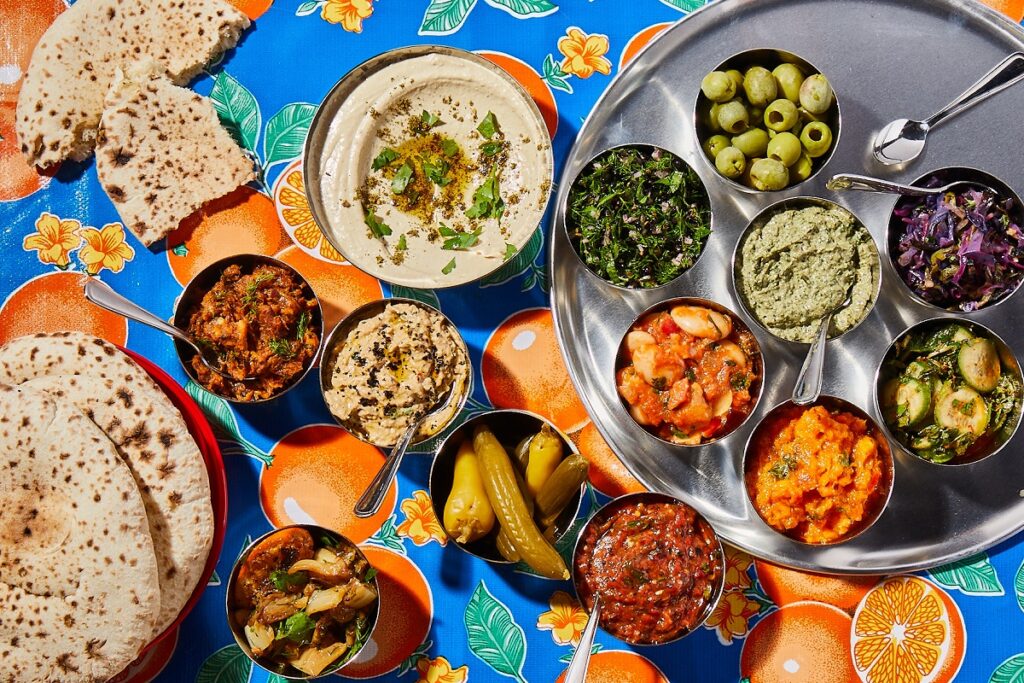
In 2015, he has also co-authored a cookbook titled “Zahav: A World of Israeli Cooking,” based on his famous restaurant. The book showcases the melting-pot cooking of Israel, especially the influences of the Middle East, North Africa, the Mediterranean, and Eastern Europe. It won the 2017 James Beard best “International” cookbook award and the James Beard “Book of the Year” Award.
But when asked how his restaurants have become so popular in the US, he’s quick to take the focus off himself and put it back on the cooking.
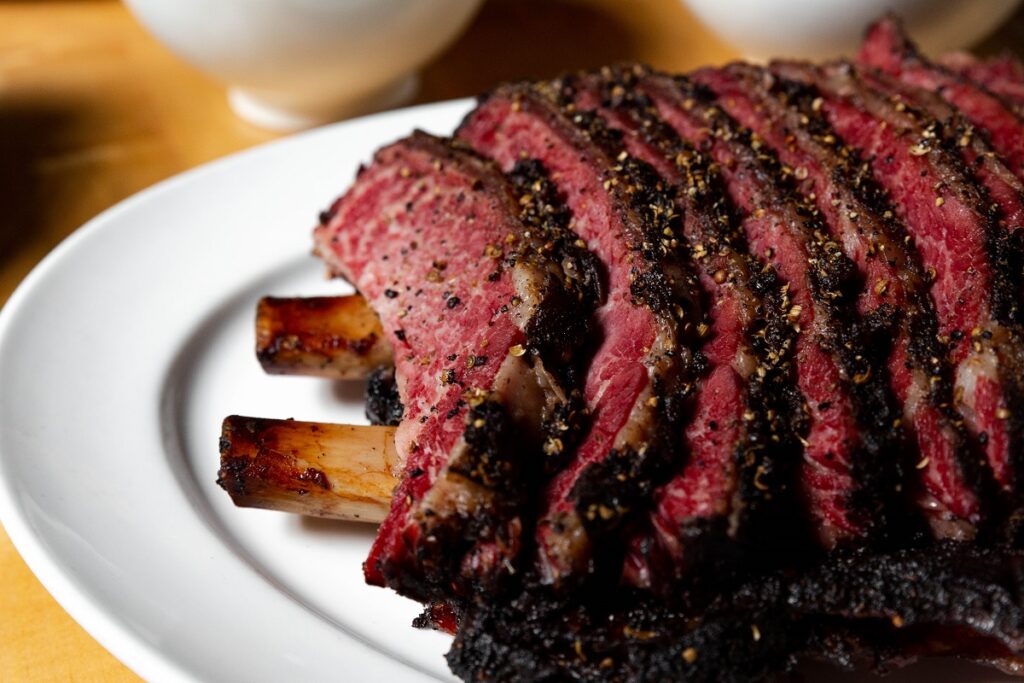
“There’s a lot of juice in Israeli cooking,” Solomonov tells NoCamels, “There’s a lot of spirit and conflict and commonality and I think that Americans like that. It’s a huge range. The tapestry of different flavors and culture is reminiscent of American cooking because we have a ton of immigrants here.”
SEE ALSO: Israeli Chef Assaf Granit’s Paris Eatery Shabour Nabs 1st Michelin Star
“When you wanted to be a chef in the US, back in the day, you’d work in fancy restaurants. You’d go to Europe. You’d do molecular gastronomy, really tight beautiful plates, and so forth,” he adds.
“Every time I would go back to Israel, we’d go to this shipudiya (skewer house) called Busi in Schunat HaTikva, which is just a normal restaurant in Israel. I’d get off the airplane and we’d go there and eat. And I’m like, ‘Why aren’t we doing this? We have to do this in the States.'”
Bringing Israel Home airs weekly on Wednesday nights at 8pm EST through April 28.
Related posts

Rehabilitation Nation: Israeli Innovation On Road To Healing

Israeli High-Tech Sector 'Still Good' Despite Year Of War


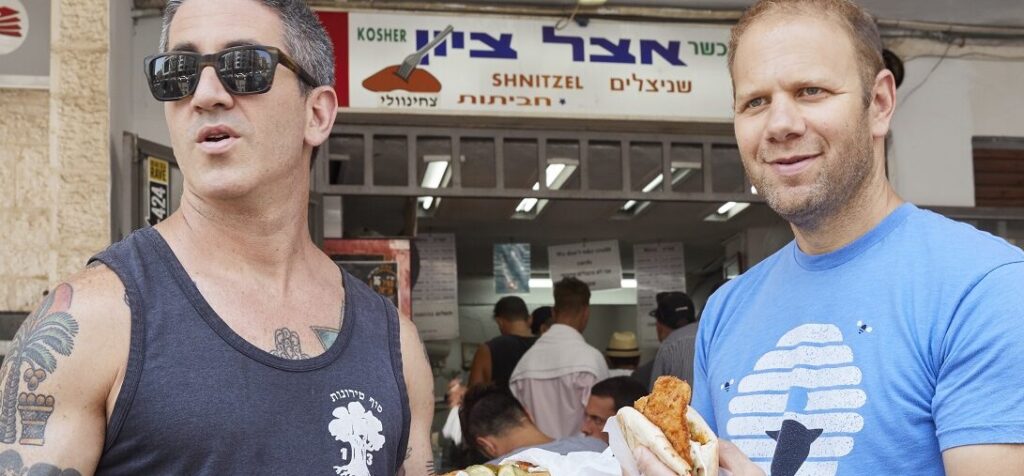


Facebook comments